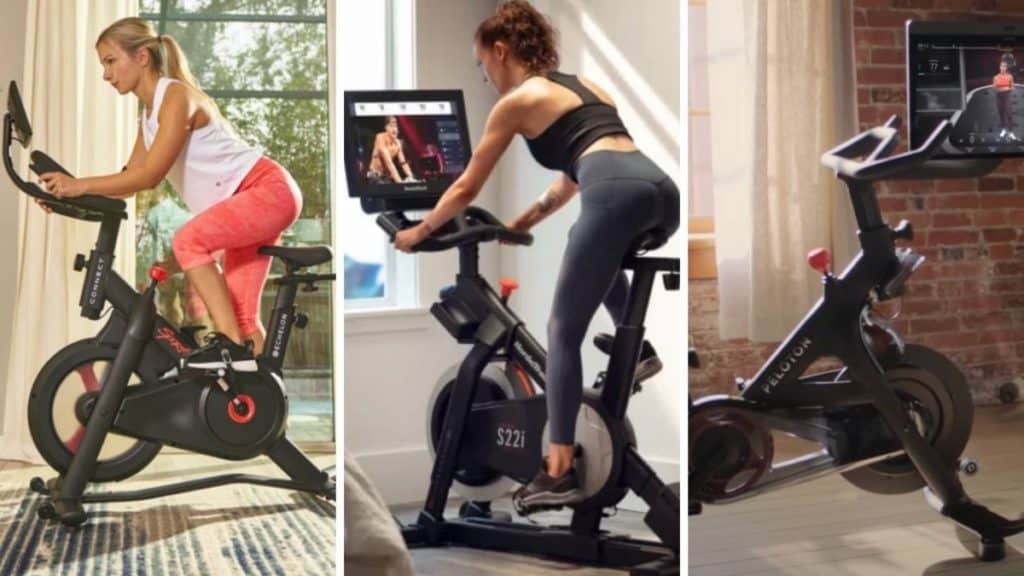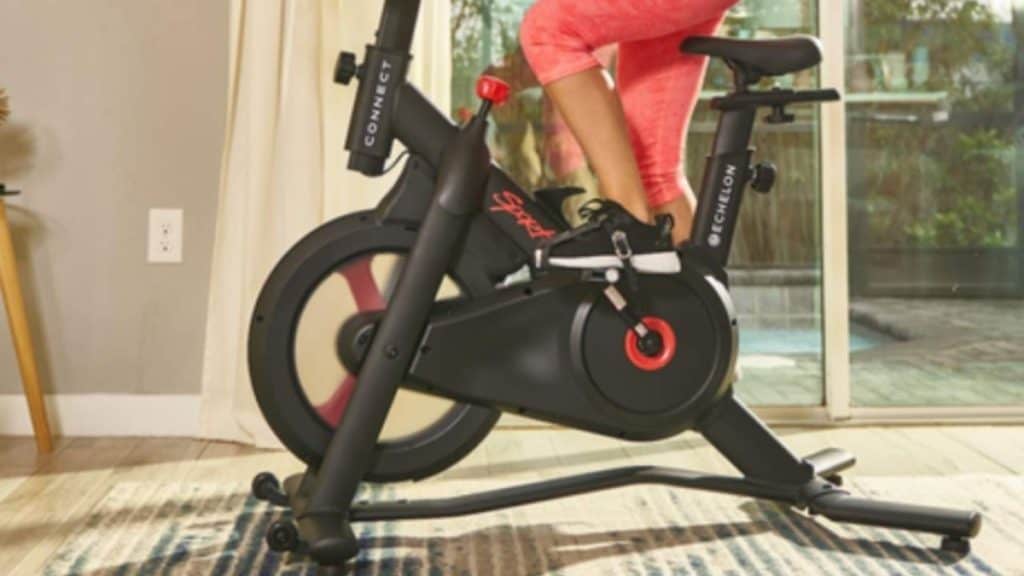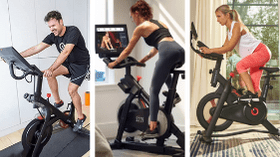
At-home spin bikes like the Peloton, NordicTrack and Echelon are becoming increasingly popular, with over 10 million of us buying them each year. This is likely due, in part, to the many benefits that come with regular use of these bikes.
These benefits include improved cardiovascular health, increased muscle strength and tone, and better overall endurance. Additionally, at-home spin bikes offer a more convenient and affordable alternative to traditional gym memberships.
The flywheel weight is an influential component of an at-home spin bike. It helps to create a smooth and consistent cycling experience. Additionally, it provides resistance for the user, which helps to increase muscle strength and tone. When choosing an at-home spin bike, be sure to pay attention to the flywheel weight. Heavier flywheels provide more resistance and a more challenging workout.
Therefore, what is the exact flywheel weight of the most popular at-home exercise bikes and which one should you buy?
Table of Contents
Flywheel Weight For Peloton, NordicTrack & Echelon
| Bike Model | Flywheel Weight |
| Peloton | 18kg (35lbs) |
| Peloton Bike + | 18kg (35lbs) |
| NordicTrack S15i | 14kg (32lbs) |
| NordicTrack S22i | 14kg (32lbs) |
| NordicTrack S27i | 14kg (32lbs) |
| Echelon Connect Sport | 7kg (15lbs) |
| Echelon Connect GT | 7kg (15lbs) |
| Echelon Connect Sport-s | 7kg (15lbs) |
| Echelon Connect EX-3 | 13kg (28lbs) |
| Echelon Connect EX-5s | 13kg (28lbs) |

What Is The Peloton Flywheel Weight?
The Peloton spin bike has a flywheel weight of 18kg (35lbs) with magnetic resistance, including a belt drive system ideal for indoor cycling. The Peloton bike + also has a flywheel weight of 18kg (35lbs).
Many differences exist between Peloton cycling and many stationary bikes, but the flywheel weight is far the biggest. A typical spin bike has anywhere from 18-22 kg flywheel (35-48lbs) of ballast weight in its alloy frame.
The Peloton bike provides inertia for natural road-like resistance on its way to being one of the most popular stationary bikes on the market. The Peloton bike uses a steel-belt drive, which requires more torque than typical chain or belt bikes. The flywheel, belt drive, and magnetic resistance make the weighs feel like 80lbs or more, the same weight as many high-end outdoor bikes.
That flywheel is a key reason for the Peloton bike’s smooth ride and realistic road feel, both of which many riders prefer over stationary bikes with a belt drive or lighter magnetic resistance. The flywheel is mounted slightly lower on the frame than the handlebars to increase stability, limit pedal bounce during sprints and accommodate users.

What Is The Flywheel Weight Of NordicTrack?
The NordicTrack S15i, S22i & S27i all have a flywheel weight of 14kg (32lbs), which are magnetic resistance and inertia-enhanced flywheels. They are designed for indoor cycling as the flywheel are nearly silent.
Even though the NordicTrack bikes have a lighter flywheel than a Peloton, the NordicTrack bikes all have the functionality of 10% decline to 20% incline, which can add a lot of extra resistance to the bikes. This supplementary angle can make the bike feel like a flywheel resistance of 20kg or more.
Therefore, if you want a completely different indoor riding experience, the NordicTrack can provide it with this unique style of cycling that no other manufacturer currently has. The standard and premium versions of the NordicTrack are the most expensive on the market. You need to determine if resistance is more significant than an incline feel. For me, I would say resistance is the biggest winner.

What Is The Flywheel Weight of Echelon?
The Echelon Connect Sport, Connect GT+ & Connect Sport-s have a flywheel weight of 7kg (15lbs). The Echelon Connect EX-3 and Connect EX-5s have a flywheel weight of 13kg (28lbs). All models of Echelon have magnetic resistance.
Echelon has the lightest flywheel weights of the pack, and unfortunately, they don’t include incline like the NordicTrack. However, Echelon is considerably cheaper than both Peloton and NordicTrack and has a more extensive range of bike models to choose from.
Echelon is a bike to consider if you are a total beginner and on a budget because the light flywheel will still provide you with a superb riding experience. Flywheel weight is important for building strength and power and can help you lose weight quicker, especially if you weigh over 200lbs. However, if you’re a lighter rider, a 13kg flywheel will still provide the resistance you require.
Is 18kg flywheel Enough?
On average, an 18kg flywheel spin bike is ideal for beginners and intermediates or heavier riders who weigh over 100kg. An 18kg flywheel is one of the heaviest on the market and will provide a good range of resistances for you to continually improve.
If you are an advanced spin biker or have been riding for many years, then an 18kg flywheel spin bike will give you resistance for the workout you desire. Furthermore, if you’re heavier than 100kg when you stand up on the pedals, you will get more balance and movement in your upper body, enough to support your overall weight making it better on your joints and knees.
Nonetheless, for the vast majority of those who want a 30 to 1-hour spin ride a few times a week to keep fit, the 18 kg flywheel is ideal for us. It’s the best place to start when it comes to buying a home spin bike, and when you get fitter and better, you can always upgrade to a heavier flywheel.



